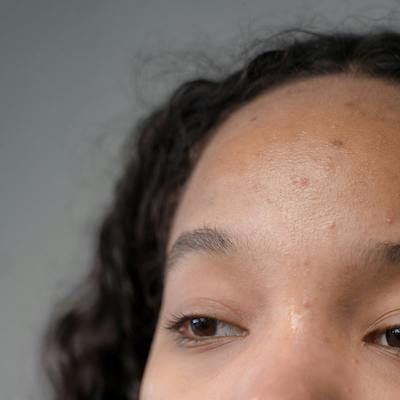News
Article
Abrocitinib Effective for Atopic Dermatitis Patients Unresponsive to Biologics
Author(s):
This analysis highlights the potential for abrocitinib as an alternative to biologics in the eczema treatment armamentarium.
Samantha Keow, BSc
Credit: LinkedIn

Abrocitinib serves as an efficacious therapy for individuals with moderate-to-severe atopic dermatitis (MtS-AD) who either fail to respond to, are unable to tolerate, or report adverse events (AEs) with biologic treatments, according to new findings.1
These results were the conclusion of new research led by Samantha Keow, BSc, from the Michael G. DeGroote School of Medicine at McMaster University in Ontario, Canada. Keow et al. noted that while biologic treatments such as dupilumab and tralokinumab are used for moderate-to-severe eczema, clinical data has indicated that significant numbers of recipients have AEs or do not show adequate response to these therapies.
To address this issue, alternatives to biologics have been proposed as potential options for patients in this population.
“Abrocitinib, a Janus kinase (JAK) 1-selective inhibitor, has demonstrated superior efficacy compared to both dupilumab and tralokinumab,” Keow and colleagues wrote. “However, there is limited evidence regarding the outcomes of real-world patients who have switched to abrocitinib following prior therapy with either dupilumab or tralokinumab. Hereby we describe the outcomes of such patients.”2
Background and Findings
The investigators carried out a study with a retrospective design at a single institution, recruiting 25 adult participants with diagnoses of moderate-to-severe atopic dermatitis. These subjects had also been treated with either 100 mg or 200 mg of abrocitinib.
This study was described by the team as the first of its kind to have assessed outcomes of individuals switching from tralokinumab to abrocitinib. This was due to the fact that no prior clinical research or observational studies on such a switch had been reported.
An inadequate response was defined by the research team as the inability to achieve an EASI-75 or a Physician Global Assessment (PGA) score of 0-1 by the 16-week mark. Following treatment, the study’s subjects had shown either an inadequate response to, or experienced AEs from, dupilumab and/or tralokinumab for a minimum of 16 weeks.
The participants’ clinical characteristics and demographic data at the point of baseline were explored within the study, as were the clinical outcomes at the 16-week mark. Overall, the team found that 76% of participants were able to achieve EASI-75, noting a higher rate of success among 88% of subjects given 200 mg of abrocitinib versus 56% of subjects given 100 mg.
The investigators reported that 65% of the trial participants at the 16-week mark were able to achieve a PGA score of 0-1. A notable addition to these conclusions was that only the subjects given 00 mg of abrocitinib saw the successful achievement of a PGA score of 0.
The research team expressed that 94% of those in the 200 mg dose cohort succeeded in achieving a Peak Pruritus Numerical Rating Scale (PP-NRS) score below 4.
The team noted the rarity of AEs connected to treatment of disease, with 28% of participants reporting such events over the 16-week treatment period. AEs were shown to have included nausea among 8%, folliculitis and/or acne among 8%, gaining weight among 8%, oro-facial herpes among 4%, fatigue among 4%, and tremors among 4%.
During the JADE EXTEND study, the investigators identified comparable findings among those who did not show response to dupilumab and had been switched to treatment with abrocitinib. In this study, it was shown that 80% of previous dupilumab non-responders who were unable to achieve EASI-50 and were in the 200 mg of abrocitinib group, as well as 67.7% of subjects in the 100 mg cohort, saw EASI-75 success by the 12-week mark.
The research team noted that among those who had achieved IGA scores of 0-1 by week 12, 47.2% had not responded previously to dupilumab and were in the 200 mg abrocitinib cohort. Additionally, 35.2% of the successful patients had been in the alternative 100 mg cohort.
The investigators noted the results of another prospective observational trial, during which it was reported that 29.4% of those in the dupilumab non-responder group succeeded in achieving EASI-75 with 100 mg of abrocitinib by the 12-week mark.
“Our findings demonstrate that abrocitinib is an effective treatment option for patients with MtS-AD who either fail to respond to, cannot tolerate, or experience AEs with biologic therapy,” they wrote. “Although our study provides real-world evidence regarding the effectiveness of abrocitinib, additional prospective studies and larger sample sizes are warranted.”
References
- Keow S, Abu-Hilal M. Effectiveness of abrocitinib for the treatment of moderate-to-severe atopic dermatitis in patients switched from dupilumab and/or tralokinumab: A real-world retrospective study. J Am Acad Dermatol. 2024 Jun 8:S0190-9622(24)00891-0. doi: 10.1016/j.jaad.2024.05.081. Epub ahead of print. PMID: 38857764.
- Chu AWL, Wong MM, Rayner DG, et al. Systemic treatments for atopic dermatitis (eczema): Systematic review and network meta-analysis of randomized trials. J Allergy Clin Immunol. 2023 Dec;152(6):1470-1492. doi: 10.1016/j.jaci.2023.08.029.





